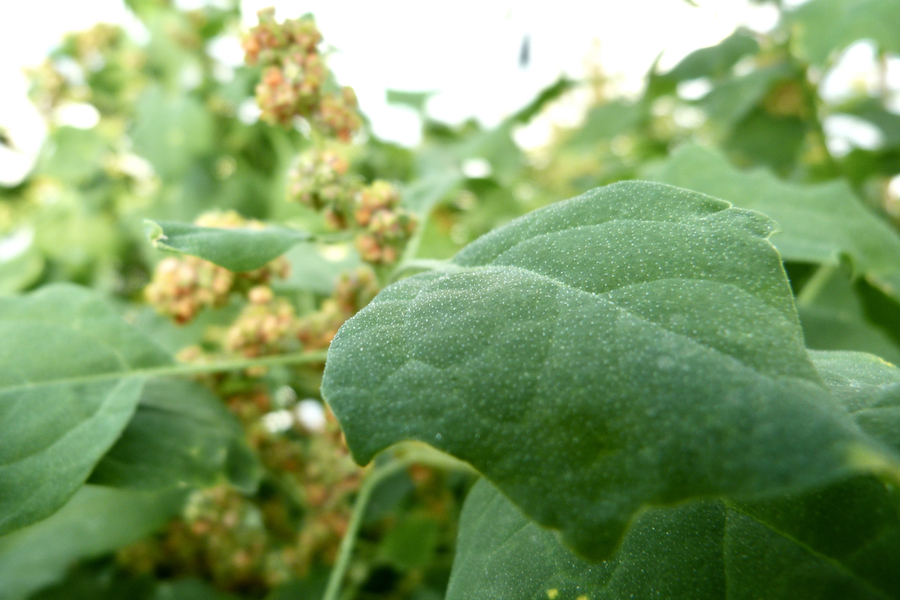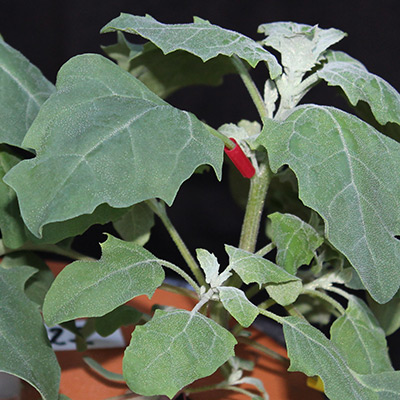Research
Salt (NaCl) affects more than 20 % of the world's irrigated land and causes huge economic losses by limiting agricultural production due to increased salinization. Soil salinization is a significant global problem that affects plant development through ion toxicity and nutrient imbalance. In plants, salt stress triggers two sequential responses. First, there is a rapid osmotic shock that reduces relative water content, leaf water potential, stomatal conductance, and turgor potential. After this first phase, a phase of ion homeostasis is induced, triggering salt toxicity and accelerating senescence of mature leaves.
Salt stress is induced by high concentrations of sodium (Na+) and chloride (Cl-) in the soil. Excess Na+ and Cl- ions compete with other nutrient elements and can lead to reduced nutrient uptake and translocation, and thus to imbalances in nutrient status. However, Na+ is not essential for plants. Potassium (K+) in particular is susceptible to this competition because of its similar chemical properties to Na+, for example, in ionic radius and hydration energy. K+ is an essential plant nutrient and is required for enzyme activity, energy transfer, protein synthesis, osmoregulation, stomatal movement, phloem transport, anion-cation balance, and stress resistance. K+ is particularly important as an inorganic osmotic element in plant cells, and therefore adequate K+ supply is critical for the regulation of turgor-controlled processes such as stomatal movement and cell elongation.
The interaction between Na+ and K+ can have negative effects on K+ uptake, which is regulated by passive and active transport systems. K+ is transported from roots to shoots by transpiration-driven water flux in the xylem, which is impaired during salt stress. Disruption of K+ homeostasis occurs, which is crucial for salt stress tolerance. For optimal plant growth, Na+ uptake must be reduced and K+ uptake increased, as a higher K+/Na+ ratio favors salt stress tolerance in plants.
The goal of this project is to gain insight into the importance of K+ in mitigating salt stress and to investigate the response of plants to salinity using different K+ supplies.








